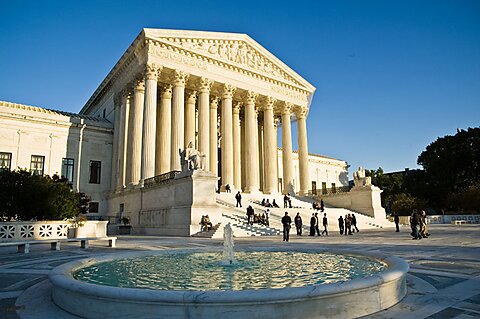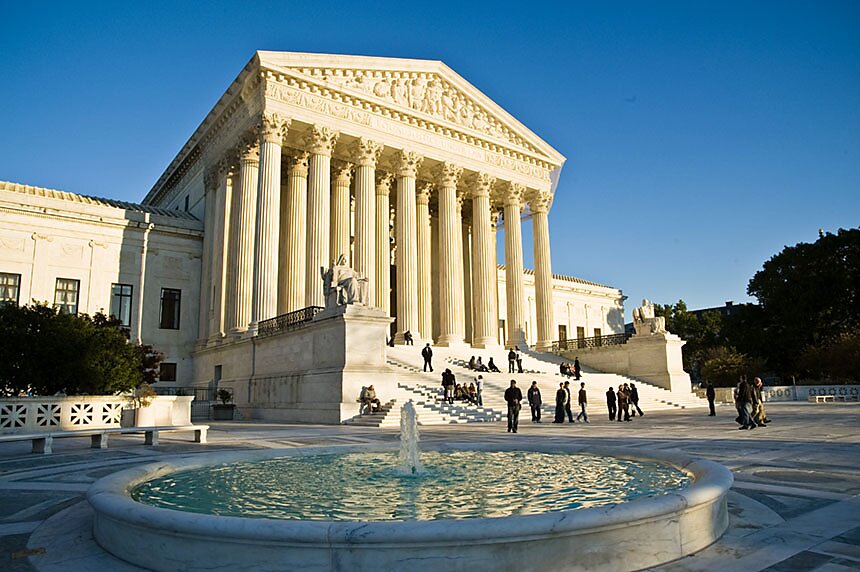In my post last week, I explained how David Enrich’s new book, Murder the Truth: Fear, the First Amendment, and a Secret Campaign to Protect the Powerful, provides an idiosyncratic account of the nature and impact of New York Times v. Sullivan. In this post, I write about Enrich’s central narrative: He describes a “crusade” with a hidden mission—to “eviscerate” protections for critical speech and “to neutralize the media and anyone else who might expose … the wrongdoing and secrets” of the wealthy and powerful. That narrative may be dramatically satisfying to some; regrettably, it obscures the real costs and consequences of the Sullivan decision.
Why Murder the Truth’s conspiracy narrative fails.
Murder the Truth is filled with irrelevant and unflattering personal characterizations of people the author, pretty obviously, has political disagreements with. For Enrich, character really is destiny—or, at least, that presumably is why he goes into great detail about the various vices of Murder the Truth’s secret crusaders who, e.g., lick their lips when speaking, celebrate at “champagne-soaked dinners,” conduct extramarital affairs, wear casual footwear to formal occasions, exhibit poor posture and rasping voices, curse, and “glower.” But this is not merely a complaint about the unusual way that Enrich jazzes up Murder the Truth with evocative journalistic filler. There is a larger problem with the book’s storyline: namely, the meat of Murder the Truth is devoted to unconvincing accounts of the way that defamation lawsuits allegedly dampen freedom of expression in America.
Over and over, Murder the Truth provides a detailed, dramatic account of one defamation action after another. But what almost always happens at the conclusion of the lawsuits that the book describes in loving detail is that the court dismisses the case, and the publisher of controversial propositions wins. It isn’t clear what such anecdotes ultimately demonstrate, except for a lengthy elaboration of the narrative that Murder the Truth rests on: namely, defamation plaintiffs are wicked people who are using the legal system to harass virtuous journalists.
Murder the Truth contains a sketchy and impressionistic theory of the dangers of overturning Sullivan: the argument of the book appears to be that the facts it presents are self-evidently damning, while, in contrast, I think they often just don’t add up to much. That is because Enrich’s repeated demonstration that media defendants win under a Sullivan regime doesn’t tell us anything about what would have happened in a non-Sullivan world.
An alert reader who considers Murder the Truth’s anecdotes will eventually realize that, in an alternate non-Sullivan world, there are two possibilities. Perhaps, in that world, the media defendant would have won anyway; in that case, Sullivan serves no purpose. Or perhaps, in that world, the media defendant would have lost because the libel action would have been successful. If, in that alternate world, the plaintiff had won—liability was proven and a judgment was entered against the defendant—it follows that the real world of Sullivan is a world in which falsehoods continue to circulate without consequence (or, worse, with court imprimatur). And it follows that, in the real world, people can be and are injured by the wrongful conduct of others without any avenue of recompense.
In fairness, Murder the Truth hints at a fallback position: namely, the danger of overturning Sullivan is not simply that free expression will be endangered—rather, another weighty danger is that the already burdensome cost of defamation litigation will thereby increase. This is a more serious argument, but I tend to think that what needs to be considered is: when we evaluate litigation costs, what is the correct moral and political baseline? Of course, it’s true both that bringing civil litigation and that defending against it is far too expensive (this is well-trodden ground), but that certainly doesn’t demonstrate that carving out special immunities and special rules for certain classes of plaintiffs is the appropriate policy response. Nonetheless, that response is Sullivan’s raison d’être.
What is needed to combat the extraordinary expenses and burdens of litigation in America today? In my view, loser-pays reforms. What is needed to combat the extraordinary expenses and burdens of litigation in this context specifically? In my view, loser-pays reforms that deter unscrupulous litigants from using litigation as a technology of harassment (that is, anti-SLAPP reforms—the acronym stands for strategic litigation against public participation).
A variety of jurisdictions have adopted anti-SLAPP reforms of varying effectiveness. My research suggests that around one quarter to one half of the states have adopted strong, effective anti-SLAPP laws; on the other hand, more than a third of the states have adopted no anti-SLAPP laws at all. Overall, I am skeptical that Sullivan-style defamation policy that creates special privileges or immunities for certain types of plaintiffs or defendants is morally defensible; I fear that, all too often, such carveouts are motivated more by class interest than by public interest. In my view, anti-SLAPP policies deserve support largely for the reasons that loser-pays policies do, and we ought to view narrowly targeted legal reforms that only benefit narrow classes of litigants as second-best solutions. Of course, the nation’s litigation climate—and, in particular, the way in which litigation can be and is strategically used—is a national scandal. In my view, the measures we need to fix it should not be confined to any particular segment of the economy.
The social consequences of weakened protections against defamation.
To put it another way, our justice system has developed broad, general rules for civil liability over the course of centuries that attempt to treat everyone fairly, and the defenders of Sullivan who want special rules for defamation actions bear a heavy burden when they ask for special treatment. In fairness, Sullivan’s defenders have an argument: namely, isn’t free speech—and the class of defendants who use it professionally—especially valuable? My answer is that, of course, free speech is incredibly valuable, but those who want to hamstring defamation actions have perhaps misunderstood how to value it.
It is perfectly fair for Murder the Truth to criticize Donald Trump’s campaign promise to revise libel law: “I’m going to open up our libel laws, so when they write purposely negative and horrible and false articles, we can sue them and win lots of money.” Of course, any scheme of regulation of “negative” or “horrible” articles would be nearly impossible and constitutionally ridiculous. But the regulability of “false” propositions is a very different question, and of course, the nation’s courts are not without experience in distinguishing truth from falsehood.
What are the social consequences that we might reasonably expect of a free-expression regime when, as in Sullivan, it is stripped of strong protections against defamation? Perhaps it is merely a coincidence that, over the last 50 years, after Sullivan, public trust in the media has collapsed. When Americans were polled in 1972 about their trust in the media, 30 percent answered either that they did not trust the media very much or that they did not trust the media at all. The population segment that doesn’t trust the media very much has risen slowly; the population segment that doesn’t trust the media at all has risen dramatically. The sum of those who have little media trust and those who have no media trust at all has traveled upward for decades: that figure has ballooned from 30 percent to 69 percent.
Free speech is an inherent and natural right, but the notion that this right should guarantee the liability-free defamation of public officials (the view expressed by three concurring Supreme Court Justices in Sullivan) is a misstep. Sullivan didn’t eliminate liability for defamation, but it sharply reduced its scope. The climate of widespread media distrust that came after Sullivan suggests that the social value of journalism is in free fall. That is not social progress; it is social dysfunction. A marketplace that tolerates commerce in spoiled food makes consumers less likely to shop there; a media sphere that tolerates the circulation of falsehoods makes citizens less likely to trust the news.
As compared to other political and civic institutions, public trust in the media is now lower than for almost any other entity. If there is a relation between the liability shield that Sullivan created for the media and the collapse of public trust in it, we might expect to see significant social problems related to the aggressive production of misinformation and disinformation, as well as greater obstacles to informed decisions in public and private life. (To be clear: this is not only what we might expect to see; in my view, this is what we do see.) If we have good reasons not to trust the news, that strikes me as a significant threat to self-government. Alternatively, I can imagine a world without Sullivan, and in that world, the social progress that a high-trust society brings will give people renewed reason to trust the news.
Anyone who believes that, under current law, the media bears sufficient accountability should give some thought to the suit that Emmanuel and Brigitte Macron filed earlier this summer against Candace Owens, a right-wing conspiracy theorist with an audience of millions of listeners. That lawsuit targeted a set of very strange claims made by Owens, repeated over and over in her eight-part podcast, “Becoming Brigitte”—e.g., that Brigitte Macron was born a man, that she stole someone else’s identity, that she underwent gender transition, that she and her husband are blood relatives who are committing incest, and that her husband became the president of France through the machinations of a CIA mind-control program.
Understandably, the president and first lady of France sued Owens in an attempt at reputational protection and vindication. I do not like their chances, because—thanks to Sullivan—modern defamation law now requires that the Macrons prove, with clear and convincing evidence, either that Candace Owens knew her statements were false or that she had serious doubts about their truth but chose to overlook them. (Note that, since Sullivan, American law rests on a subjective standard which requires proof of Owens’s actual, non-hypothesized mental state; an argument based on an objective negligence theory—that a reasonable person would never come to the conclusions that Owens has—would be insufficient to demonstrate liability.) Here is the difficulty for the Macrons: consider the possibility that Candace Owens is a relatively gullible and thoughtless person who is just not very good at drawing accurate conclusions about the evidence she sees. If the defense tells a story that is something like that, it will be very difficult—likely impossible—for the plaintiffs to win. Now maybe the plaintiffs can discover an email dating back years ago from Candace Owens to a colleague that reads “Today I plan to lie in Brigitte Macron in my podcast”; perhaps the plaintiffs will figure out how to introduce, through testimony, an account of a past, recollected conversation between Candace Owens and a co-worker during which Owens confided that she entertained doubts about the accuracy of her representations. Evidence like that might let the Macrons win. But if the plaintiffs cannot find such outside-world evidence of malice, I am quite pessimistic that they will prevail: I predict that Owens will take the position that she genuinely believed everything that she said, and that the plaintiffs will find it difficult to produce the clear and convincing evidence they need that would outweigh Owens’s representations of good faith.
My view is that Candace Owens makes a nice living, in part, through freewheeling statements that damage the reputations of real people. When our legal system understands what she propagates as non-defamatory activity protected by the First Amendment, something has gone wrong.
I think Elena Kagan was right to say that “reputational harm is real harm” and that “the legal system should not pretend that it is not.” Of course, there are plenty of people who disagree—who believe that reputational injuries are just not real, and that when someone loses a job or an election or a marriage because of defamation, the victim should just toughen up and realize that no injury has occurred, that the law should respect. Ultimately, Sullivan can be understood as a kind of primitive and unsophisticated version of what we now call “tort reform.” Tort reform, in the modern sense, is often driven by the concern that the consequences of our civil justice system are overly redistributive and counterproductive. Sullivan, like other tort reform policies, makes recovery harder for certain kinds of injuries by requiring a relatively unusual kind of evidence for liability as well as a relatively exacting standard of proof—and, like other tort reform proposals, Sullivan prevents certain kinds of claims from being heard in court at all. In itself, barring judicial consideration of certain classes of injuries isn’t necessarily bad policy—but any thoughtful assessment of such tort reform will include consideration of whether carving out a special zone of liability-free conduct for specially-situated defendants is socially beneficial or socially harmful.
Regrettably, Murder the Truth contains no such assessment: instead, it is broadly supportive of the notion that defamation is in some sense unimportant and so the law should not take it seriously. The book insists that Sullivan’s “actual malice” standard has “become an ‘indispensable safeguard’ for American journalists and everyday citizens who hoped to hold their leaders and other powerful actors to account.” I worry that this is a hollow promise because the media simply cannot hold powerful actors to account if people cannot trust it. Murder the Truth argues that, for journalists, the absence of Sullivan means the presence of fear. But I have fears too, and they are not nearly as subjunctive: Regrettably, both experience and common sense demonstrate that Sullivan’s compromise has eroded both accountability and the value of free expression, both for speakers and for those they speak about.
(I will end this post as I ended my previous post: my views on these matters are mine and mine alone, and it is certainly true that there are significant differences both inside and outside of the Cato Institute about the nature of proper defamation policy. Here is an interesting video discussion from Libertarianism.org that suggests that this diversity in views is long-lived; watch it if you want to see journalist Nat Hentoff argue for the elimination of all libel laws and philosopher David Kelley argue for the legal protection of reputation. I tend to think that Kelley has the better of the argument. And of course it is notable that neither party can defend the policy hodgepodge of speech regulation that Sullivan exemplifies and that we have today.)




